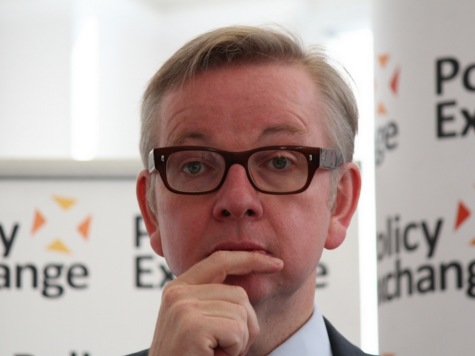Michael Gove’s colourful stint as Education Secretary is over. He has fallen foul of David Cameron’s cull of white middle-aged men, and has been moved onwards, but not necessarily upwards, to become Chief Whip.
Cameron is hoping that voters will buy into his policies if they are fronted by hip young things, unburdened by experience or principle — a tactic clearly borrowed from Margaret Thatcher, who romped to successive election victories by filling her cabinet with fresh-faced hepcats like Geoffrey Howe and Kenneth Baker.
The massed ranks of the National Union of Teachers will no doubt be dancing on Gove’s proverbial grave, and claiming to have forced him from office; but the truth is that he was a victim of his own reformist zeal.
When Gove’s irresistible force met the teaching establishment’s immovable object, sparks were bound to fly. Eventually, the rows took their toll on his reputation and on Cameron’s patience, prompting the PM to replace him with Nicky Morgan, a more conciliatory figure, who will “reach out” to those soft, cuddly, open-to-change teaching unions.
Gove deserves credit for taking on one of the most wretched hives of leftism in the Western world: the British state education system. For decades, the schooling of our children has been entrusted to axe-grinding radicals, who view our culture through a prism of resentment and self-loathing, and who subscribe to a bile-spattered narrative that describes our history as a shameful tale of exploitation and oppression.
Their ambition has been no less than to churn out generation after generation of Labour-voting replicants, who share their grievances, parrot their opinions, and are tutored in ignorance and conceitedness.
Doubtless, many educators are wonderful, caring individuals, but even the best of them are required to collaborate with rotten policies. Take the corruption of our exam system, for instance. Between 1988 and 2013, the number of pupils achieving GCSE grades A to C increased by almost two-thirds, from 42.5 percent to 68.1 percent, with A or A* grades nearly trebling.
In 1987, only 10 percent of A-level students achieved an A or A*; by 2012, that figure was nearly 27 percent. Are we to believe that children have undergone some kind of evolutionary quantum leap, or that the progressives have cracked the code to our inner-genius, à la movie masterpiece Baby Geniuses? Or could it be that the exam system has simply been vandalised for political reasons?
If you took a sample of employers and university lecturers, and told them that school-leavers are smarter than ever, they would laugh in your face. In fact, most people who come into contact with young people would tell you the same thing: they’re dumber than they used to be.
If anecdotal evidence doesn’t float your boat, consider the findings of last year’s OECD study, which found that young adults in England have among the lowest rates of literacy and numeracy in the industrialised world. Anyone who really cares about our children’s education would be shocked by the contradiction between this reality and our years of ever-improving exam results. Yet, each time the issue is raised, the teaching profession, Labour politicians and the liberal media close ranks to defend teaching methods and to decry the evil, judgmental child-haters who want to undermine the achievements of our hard-working kids.
For at least forty years, British state education has been based on the idea that imagination and self-esteem are not only valid substitutes for knowledge and discipline, but are incompatible with each other. This philosophy is key to the Left’s quest for inner freedom — or, if you like, its war on anything that challenges the human ego: hierarchy, competition, tradition, received knowledge, and all those other things so beloved by conservatives.
The trouble for young people is that while the all-must-have-prizes, love-thyself ethic of the comprehensive school can be made to work in the Xanadus of academia and the public sector, it doesn’t cut much ice in the real world, where most people must work, if only to finance the Left’s pipe dreams.
As long as humans have needs, they will have expectations, which translate into objective standards of excellence. The world turns on people’s efforts to meet and exceed those standards. Pretending they don’t exist, don’t matter, or are irrational prejudices, might be easy on the ego, but does nothing to create a society worth living in.
Michael Gove understood this, which is why he took on ‘The Blob’ and tried to bayonet his way through decades of progressive entrenchment. Only time will tell whether he succeeded, but he deserves respect for daring to question the status quo. Although he didn’t get everything right, his policies still represented the nearest thing to genuine conservative reform this lacklustre government has mustered since coming to power.

COMMENTS
Please let us know if you're having issues with commenting.